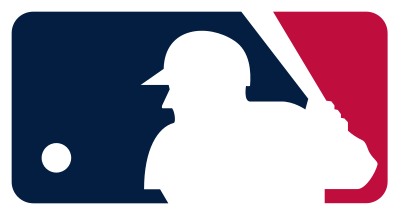Major League Baseball implements universal designated hitter for 2022 season

Opinions are divided over the MLB’s newest rule, which extends the designated hitter into the national league. (Photo courtesy of Wikipedia Commons)
February 18, 2022
Last week, Major League Baseball Commissioner Rob Manfred announced that the League would implement a universal designated hitter rule. The designated hitter (DH) was originally implemented in the American League in the 1973 season to bolster both batting numbers and fan attendance.
The rule allowed American League teams to utilize a player who only hits, rather than having to split time and risk injury playing the field. The DH took the place of the pitcher in the lineup. In essence, the pitcher would exclusively play the field, allowing to concentrate solely on pitching and the designated hitter would bat in their slot. The National League never implemented this rule and stuck to the age-old practice of making their pitchers hit, most often at the end of the batting order.
Although I fall in the anti-DH camp, there are certainly some advantages to the implementation of the new rule. One of these is the evenness between the two leagues. When the American League regularly utilizes the DH and National League only does so in inter-league games, the statistics will be skewed in favor of the American League. These comparative statistics don’t mean much, since they only play a role in direct comparisons between teams as a whole, but there is still a sense of unfairness if teams are being asked to strategize differently.
Additionally, the use of the DH cuts down on a number of pitcher injuries. When pitchers can focus more specifically on training for pitching, rather than completing batting practice too, they’ll be better prepared for long outings and the grueling demands of pitching a nine-inning game. Pitchers also sustain a significant amount of injuries in their offensive endeavors, as they are not trained as meticulously in the art of batting and running the bases.
The player’s consensus to this rule is also neutral to slightly pro-DH, with most starting pitchers favoring the DH. As former MLB starting pitcher Clay Buchholz said, “A lot of money is paid for starting pitchers, and many of us aren’t comfortable hitting.” Number one prospect for the Tigers Casey Mize added, “I don’t know if I’m looking forward to it, I don’t think I’ve ever faced over 90, so I think that would be a pretty scary thing to experience.”
Moreover, there are numerous disadvantages to the new rule, which are in my opinion much more compelling. Sending pitchers to the plate accounts for a significant amount of the strategy that goes into crafting a batting order. Managers have to decide how to account for what is a traditionally weak spot in the lineup, figuring out how to bolster the pitchers’ spot on both sides to avoid an unproductive inning at the plate. Using the DH also limits the amount of “small ball” strategy in baseball– something that is already being lost as the game shifts toward power hitters. Pitchers can be useful tools to move players around the bases with techniques like sacrifice bunting. Though they often strike out embarrassingly and comically, there is nothing in the game more exciting and surprising than a pitcher knocking one out of the park.
Furthermore, implementing the DH also lessens the skillset it takes for players to be successful in the league. It isn’t enough to be only a talented hitter; players also have to show their skills in the field. The DH makes it so players can skate by on their offensive ability, ignoring the other half of the game.
This change also seems to be representative of what I see as a much larger issue in the world of baseball: the constant efforts to change the game. From putting a time clock on pitchers to starting extra innings with a runner on second base, Rob Manfred’s tenure as commissioner has been characterized by incessant alterations to the way the game is played. If Manfred is worried that America is losing interest in baseball, it seems that changing fundamental parts of the game will only alienate true fans rather than bringing in new ones that weren’t interested in the first place. If implementing the DH in the American League has not bolstered numbers enough to stop the “baseball in peril” narrative, why would adding it to the National League accomplish that goal?


























































































































Fred • Apr 1, 2022 at 9:03 am
Madeline’s assessment is on point and the reason I have favored the NL